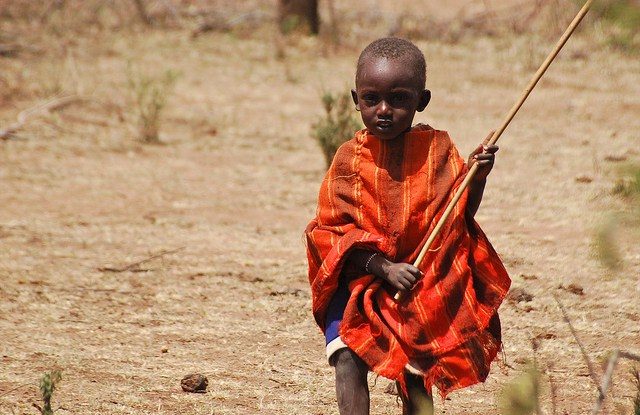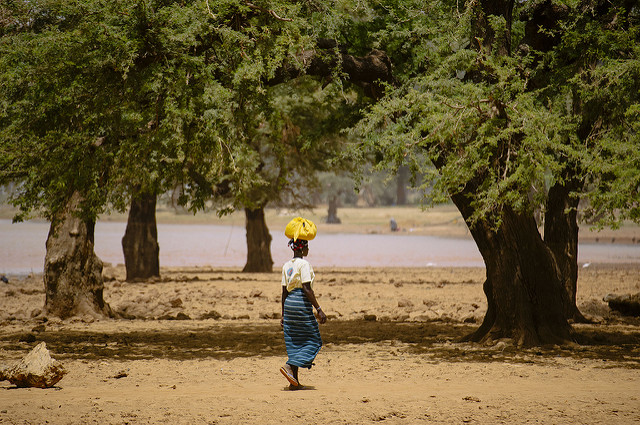
LIMA, Peru—African herders who have traditionally moved livestock from place to place, following seasonal forage and water supplies, increasingly find their old paths blocked by land speculators and investors, experts say.
In other parts of the world too, similar problems plague indigenous people who practice shifting cultivation in forests, clearing small plots of land to plant crops for several years and then moving to a different area and allowing the forest to take over again.
The languages, traditional knowledge and beliefs of the world’s 370 million indigenous people are invaluable for the sustainable management of natural resources and for food security, Susan Braatz, senior forestry officer for the UN Food and Agriculture Organization, said during a panel discussion at the 2014 Global Landscapes Forum in Lima, Peru.
The forum was organized by the Center for International Forestry Research (CIFOR), the UN Environment Program and the UN Food and Agriculture Organization. Convened on the sidelines of the annual UN climate change conference, the Forum brought together more than 1,700 people from 90 countries including country climate negotiators, ministers, CEOs, indigenous leaders, civil society leaders and researchers.
In Tanzania, Maasai herders or pastoralists have a long tradition of moving from one ecosystem to another, said Edward Porokwa, an advocate of the High Court of Tanzania.
But although at least 10 percent of the country’s population engages in pastoralism, contributing about 13 percent of Tanzania’s GDP, government policy does not support the practice and officials would rather eradicate it, Porokwa added.
Some herders have been moved to ranches, in experiments that largely failed because they have lost access to the variety of ecosystems they have traditionally used, he said.
Pastoralists move their flocks and herds to take advantage of a varied landscape, where salt licks are found in some areas, grass in others and water elsewhere, he said. That mobility keeps the animals allows grazing land to recover and allows domestic animals to share grasslands with wildlife.
HERDERS ON THE MOVE
Forests count, too. Because wildebeests carry diseases that can infect cattle, the herders move their livestock into forests periodically to avoid infection.
Climate change is a reality [for everyone], but is more serious for indigenous people
But that mobility is increasingly restricted by land speculators and investors who purchase property in areas traditionally used by herders, planting crops and building fences to keep their animals out sed. Urban sprawl caused by population growth further limits access to land.
With less good grass and water available, domestic animals suffer more when drought or other disaster strikes, Porokwa said. In those years, herders may go hungry.
“Climate change is a reality [for everyone], but is more serious for indigenous people,” he said.
Poverty rates are generally higher among indigenous people than other groups, and poor people often have little or no say in laws and rules that affect them, Braatz said.
Ironically, several United Nations, International Labor Organization and FAO treaties are designed to safeguard indigenous people’s rights, but they often do not translate into national or local laws and policies, she said.
She argued that governments should recognize indigenous people’s claims to land and safeguard their right to self-determination, and that development projects affecting those communities should proceed only with their free and informed consent.
Because the loss of traditional herding practices could cause community structures to break down, Braatz said, governments should encourage indigenous people to participate fully in land management and decisions about land tenure.
Instead of viewing traditional communities as obstacles to development, they should be recognized for the knowledge and practices that contribute to food security, Braatz said.
“Indigenous people,” she said, “have a special relationship with the land and with their territory that is important for their physical and cultural survival.”
We want you to share Forests News content, which is licensed under Creative Commons Attribution-NonCommercial-ShareAlike 4.0 International (CC BY-NC-SA 4.0). This means you are free to redistribute our material for non-commercial purposes. All we ask is that you give Forests News appropriate credit and link to the original Forests News content, indicate if changes were made, and distribute your contributions under the same Creative Commons license. You must notify Forests News if you repost, reprint or reuse our materials by contacting forestsnews@cifor-icraf.org.
